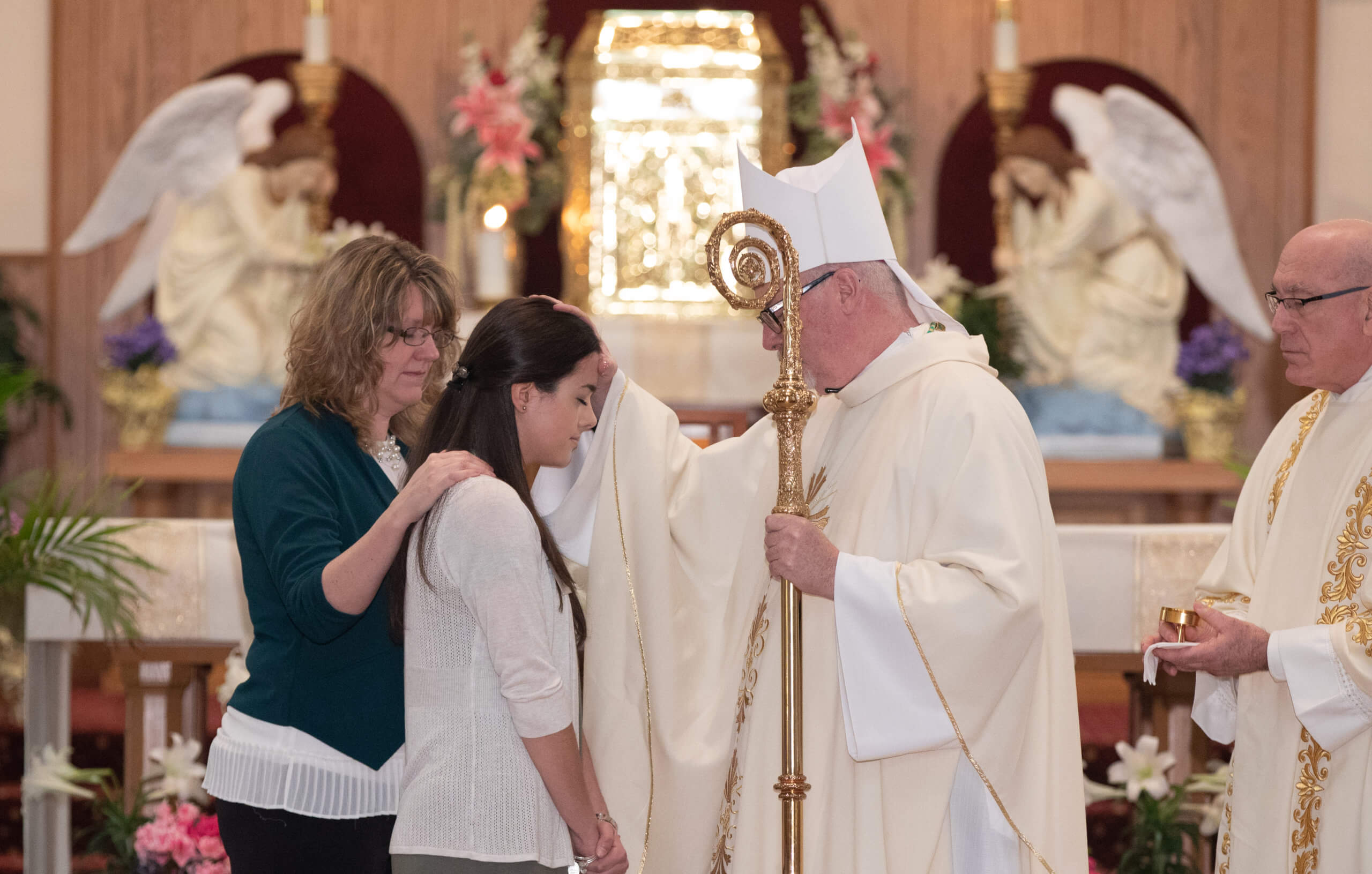
Ever wondered why confirmation ceremonies feel so special, or why they're such a big deal in many cultures and religions around the world? Well, you're about to find out! Confirmation isn't just another reason for a family gathering; it's a rite of passage that marks a significant step in a person's spiritual journey. From its origins to surprising customs and little-known facts, there's a lot more to this ceremony than meets the eye. Whether you're gearing up for your own ceremony or just curious about this fascinating tradition, get ready to uncover the top 21 facts about confirmation that will surely give you a deeper appreciation for this meaningful event. Let's dive into the world of confirmation and discover what makes it truly unique!
Key Takeaways:
- Confirmation is a special ceremony in Christianity where individuals affirm their faith. It involves rituals like anointing with chrism and choosing a confirmation name, reflecting a personal commitment to the Christian faith.
- Confirmation varies across denominations and cultures, but its core purpose remains the same: to deepen faith and strengthen the bond with the church community. It's a significant milestone in the spiritual journey of Christians worldwide.
Understanding Confirmation
Confirmation is a rite of initiation in many Christian denominations. This ceremony is seen as a sacrament by many branches of Christianity, including Roman Catholicism, Anglicanism, and Orthodoxy. During confirmation, a person affirms the faith into which they were baptized as a child, marking a conscious, personal decision to commit to that faith.
- Confirmation is not universal across all Christian denominations. Some Protestant groups view it as a mature reaffirmation of faith rather than a sacrament.
The Role of a Sponsor in Confirmation
In many traditions, candidates for confirmation are encouraged to have a sponsor. This sponsor, often a godparent or a spiritually mature Christian, plays a significant role in the confirmand's spiritual journey.
- Sponsors guide candidates through their spiritual preparation for confirmation and often continue to mentor them in their faith journey afterward.
Symbols and Rituals in Confirmation
Confirmation is rich in symbols and rituals, each carrying deep meanings within the Christian faith.
-
One of the central acts of confirmation is the laying on of hands by a bishop or priest. This gesture symbolizes the Holy Spirit's descent upon the Apostles at Pentecost.
-
Another significant symbol is the anointing with chrism. Chrism is a mixture of olive oil and balsam, blessed by a bishop, symbolizing the Holy Spirit's anointing of the individual for a life of Christian witness.
Confirmation Names
Choosing a confirmation name is a tradition in many denominations. This name, often that of a saint, represents a new identity in Christ and a model of Christian virtue to emulate.
- The practice of adopting a confirmation name can be traced back to the early Christian martyrs, who often took new names upon their baptism to signify their new life in Christ.
Confirmation Across Denominations
While the essence of confirmation is consistent, its practice can vary significantly across different Christian denominations.
-
In the Roman Catholic Church, confirmation is one of the seven sacraments, typically received in early adolescence.
-
The Eastern Orthodox Church combines baptism, confirmation (known as Chrismation), and Eucharist into a single ceremony for infants.
-
Anglican and Lutheran traditions also hold confirmation but may vary in the age at which it is administered and the emphasis placed on catechetical instruction.
Global Confirmation Traditions
Confirmation traditions can vary not just by denomination, but also by culture and country, reflecting the universal nature of the Christian faith.
-
In some Latin American countries, confirmation celebrations are elaborate, similar to quinceañeras, marking the confirmand's spiritual maturity.
-
In parts of Europe, it's common for confirmands to receive gifts of religious significance, such as Bibles or religious medals, as part of their confirmation celebration.
The Impact of Confirmation
The impact of confirmation extends beyond the ceremony itself, influencing the spiritual life of the individual and their community.
-
For many, confirmation is a deepening of faith, a moment of personal commitment to live out the teachings of Jesus Christ.
-
It also serves to strengthen the bond between the individual and their church community, as they publicly affirm their commitment to the faith.
Modern Perspectives on Confirmation
In recent years, there's been a shift in how confirmation is viewed and practiced in some circles, reflecting broader changes in society and in religious practice.
-
Some communities now place a greater emphasis on personal faith development and active participation in the church before, during, and after confirmation.
-
There's also a growing trend of ecumenical confirmations, where Christians from different denominations celebrate the rite together, emphasizing unity in diversity.
Confirmation and Youth Engagement
Engaging young people in the life of the church is a challenge many denominations face. Confirmation can play a crucial role in this engagement.
-
Programs often include service projects, retreats, and catechesis, aiming to make faith relevant to the lives of young people.
-
Successful confirmation programs are those that foster a sense of belonging and provide a safe space for questioning and growth.
The Future of Confirmation
As society and the church evolve, so too does the practice of confirmation.
-
Innovations in technology and social media are being used to connect with confirmands, offering new avenues for instruction and community building.
-
There's an increasing focus on intergenerational mentorship, connecting confirmands with older members of the congregation to enrich the faith journey of both.
-
Despite changes in practice, the core purpose of confirmation—to affirm one's faith and commitment to the Christian community—remains unchanged.
-
As global connectivity increases, so does the opportunity for shared experiences and learning among Christians worldwide, potentially leading to more unified practices of confirmation.
-
Ultimately, confirmation continues to serve as a vital milestone in the spiritual lives of Christians, marking a conscious choice to live out the values and teachings of Jesus Christ in a complex world.
A Final Nod to Confirmation Facts
We've journeyed through a maze of intriguing facts about confirmation, each one shedding light on its significance across cultures and religions. From its roots in Christian rites to its broader implications in society, confirmation stands as a rite of passage that marks a pivotal moment of commitment and understanding. Whether it's the symbolic laying on of hands or the diverse age requirements across denominations, these details highlight the rich tapestry of traditions that define our global community. As we close this chapter, let's carry forward the appreciation for the depth and diversity confirmation brings to the spiritual journey. It's more than just a ceremony; it's a milestone that weaves together faith, tradition, and personal growth into a singular, memorable experience.
Frequently Asked Questions
Was this page helpful?
Our commitment to delivering trustworthy and engaging content is at the heart of what we do. Each fact on our site is contributed by real users like you, bringing a wealth of diverse insights and information. To ensure the highest standards of accuracy and reliability, our dedicated editors meticulously review each submission. This process guarantees that the facts we share are not only fascinating but also credible. Trust in our commitment to quality and authenticity as you explore and learn with us.


